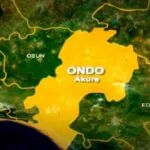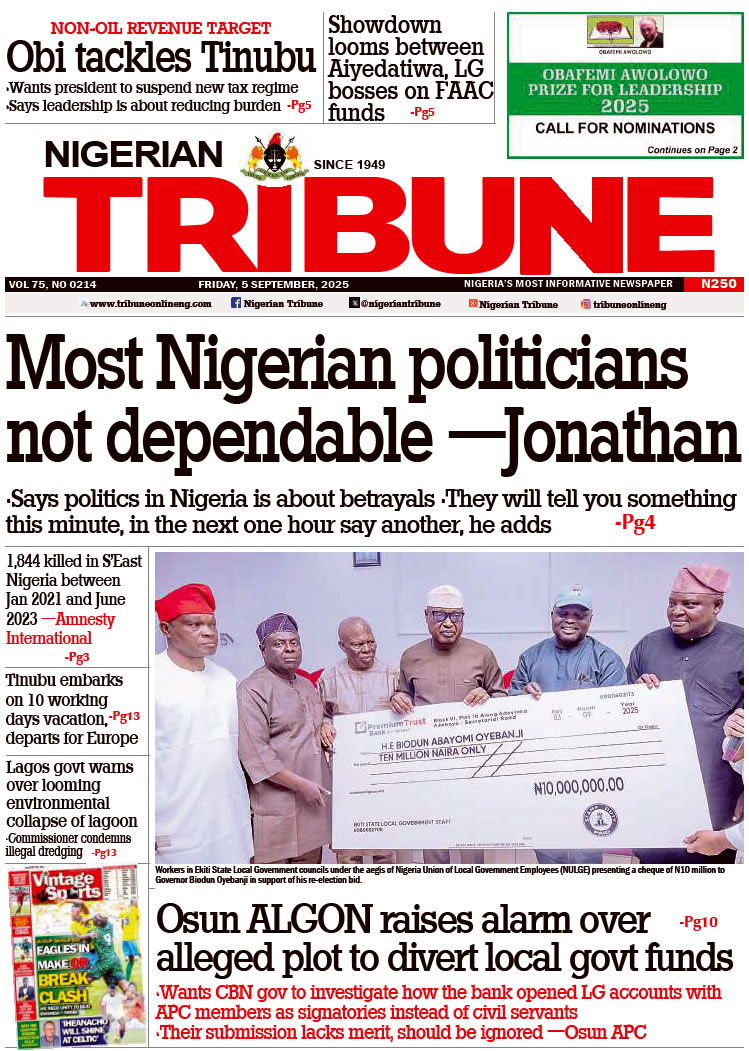Lagos State Governor, Babajide Sanwo-Olu, on Friday, assured that his administration is ready to collaborate with the Universal Basic Education Commission (UBEC) to provide quality education across the country, especially in Lagos.
Governor Sanwo-Olu gave the assurance during a courtesy visit by the Executive Secretary and Board Members of UBEC Board held at the Office of the Deputy Governor’s Office, the Roundhouse, Alausa, Ikeja.
The governor, who was represented by the Deputy Governor, Dr. Kadri Obafemi Hamzat, while giving the assurance, noted that education is the foundation of national development, and, therefore, must remain the nation’s priority, particularly in states.
Sanwo-Olu said, to this end, no child in Nigeria should be left out of school in the current year, pointing out that education should not be about region, culture, or Tradition, but a fundamental right.
This was just as he asserted that if the country got the primary education right, the future of its children would be secure.
“In 2025, no child in Nigeria should be left out of school. Education should not be about region or culture or tradition; it is a fundamental right. If we get primary education right, the future of our children will be secure,” he said.
He, therefore, expressed his administration’s commitment to partner with the UBEC to provide qualified teachers, proper security, and full infrastructure completion for the Smart Model School, built by the commission in Lagos.
Governor Sanwo-Olu, while highlighting the need for peer review among states and encouraging real-time knowledge sharing by UBEC to aid the needs of every state, added that the best practices in Lagos and other regions can be replicated nationwide for the overall development of the country.
Citing Badagry’s history as a former slave route, the governor stressed the importance of education in securing Nigeria’s self-sufficiency, emphasising that Nigeria would never again depend on external powers for its progress.
He commended the commission’s new funding model, which allows states to apply resources according to their specific needs rather than a one-size-fits-all approach, describing the approach as a welcome development in the country.
Besides, the governor admonished education stakeholders to consider data-driven planning, stronger attention to special needs in the education sector, and proactive health checks for pupils, including vision and hearing assessments, to ensure no child was left behind.
UBEC Executive Secretary, Aisha Garba, earlier in her remarks, stated that the board was in Lagos to seek partnership with the state government in providing qualified teachers, proper security, transportation for students, and full infrastructure completion for the Smart Model School, built by the commission in Badagry.
Garba added that to make the school functional, the state government must support and sustain it, saying that the school has the capacity to accommodate almost a thousand students across, with a lot of technology facilities that the commission procured in terms of computers, smart interactive boards, among others.
“We built the Smart School at Iworo-Ajido, Badagry, Lagos State, which happens to host one of the largest smart schools built by UBEC.
“So it’s very important that we partner together to see how we can sustain that investment in terms of ensuring teachers are recruited by the state, also to ensure that at least there’s transportation for students, as well as ensuring the security in that particular school,” she said.
Speaking further, the UBEC boss noted that Lagos was leading in terms of achieving the outcomes in education in the country, adding that the commission hosting its quarterly meeting in the state allowed other State Universal Basic Education Boards (SUBEBs) to see the Lagos model in terms of delivering quality education.
She, therefore, called for a partnership between the Lagos State Government and UBEC in all aspects, particularly in partnership with the private sector, noting that the state had one of the largest private sector education service providers in the country, while there were low learning outcomes across all other states.
“We want to really work with you to see how this particular model can be replicated. We are delighted that private sector can take the lead in many of our states across Nigeria in working with us to improve access and quality of education, just the way they did here in Lagos, as well as also work with the private sector themselves to see how we can encourage them to go and set up these schools, especially the low-cost private schools in some parts of the Southern Nigeria, especially the neighboring states around here,” Garba.
ALSO READ TOP STORIES FROM NIGERIAN TRIBUNE
WATCH TOP VIDEOS FROM NIGERIAN TRIBUNE TV
- Let’s Talk About SELF-AWARENESS
- Is Your Confidence Mistaken for Pride? Let’s talk about it
- Is Etiquette About Perfection…Or Just Not Being Rude?
- Top Psychologist Reveal 3 Signs You’re Struggling With Imposter Syndrome
- Do You Pick Up Work-Related Calls at Midnight or Never? Let’s Talk About Boundaries






